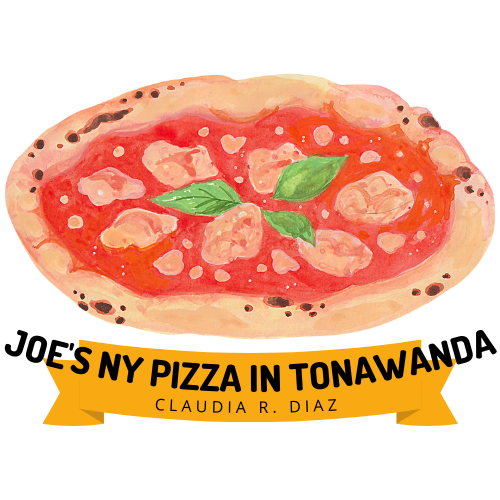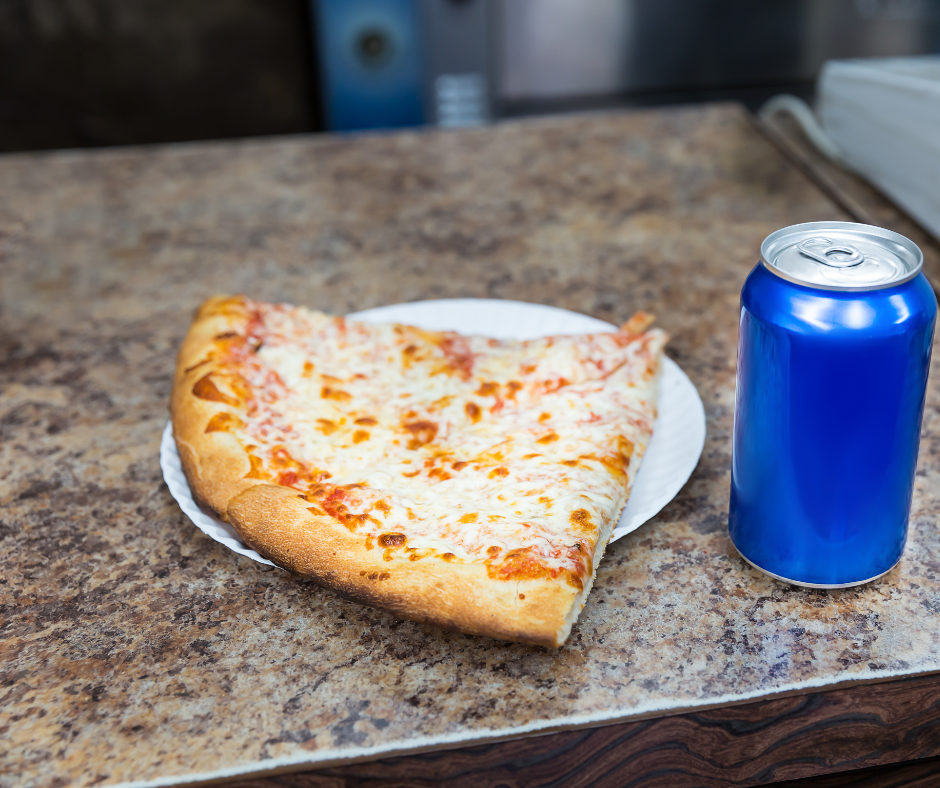Introduction
For many pet owners, sharing food with their furry companions is common. However, it’s crucial to know the potential dangers involved, especially when sharing certain foods like pizza. So, Can Pizza Kill Dogs? In this article, we’ll explore the risks and explain why pizza can threaten dogs.
The Bond Between Pets And Pet Owners
Pets hold a special place in their owners’ hearts, often considered part of the family. As a result, it’s natural for pet owners to want to share their favorite foods, like pizza, with their canine companions. However, it’s essential to recognize that what may be safe and enjoyable for humans may not be the same for animals.
The Common Practice Of Sharing Food With Pets
Sharing food with pets, including leftover pizza, can be risky due to several reasons:
- Ingredients: Many pizza toppings are not suitable for dogs. Ingredients like onions, garlic, and certain spices can be toxic to canines, leading to gastrointestinal upset, anemia, or even more severe health issues.
- High-fat content: Pizza is often high in fat, which can be hard for dogs to digest. Consuming large amounts of fatty foods can lead to pancreatitis, a condition characterized by pancreas inflammation.
- Bones and crust: The bones in pizza can splinter and cause obstructions or injuries in a dog’s digestive system. The crust may contain ingredients harmful to dogs, such as salt or sugar.
While it may be tempting to share pizza with your dog, it’s important to prioritize their health and well-being. Instead of risking their safety, consider other ways to show love and bond with your pet, such as a healthy treat or special playtime.
Remember, if you suspect your dog has ingested something harmful or is experiencing any adverse symptoms, it’s crucial to consult a veterinarian as soon as possible.
Can Pizza Kill Dogs?
The Ingredients In Pizza That Are Harmful To Dogs
Pizza is a popular food many enjoy, but Can Pizza Kill Dogs? While pizza itself may not necessarily be lethal to canines, certain ingredients commonly found in pizza can pose a risk to their health. For example, the cheese used in pizza often contains high levels of lactose, which can lead to digestive problems in dogs. Additionally, pizza dough contains yeast, which can undergo fermentation in a dog’s stomach and cause bloating and discomfort.
Specific Dangers Of Certain Toppings And Seasonings
Not all toppings and seasonings used in pizza are safe for dogs. Some common pizza toppings, such as onions and garlic, can be toxic to dogs and cause damage to their red blood cells. Seasonings like salt and spices used in pizza can also lead to sodium poisoning in dogs if consumed excessively. It is important to remember that just because a certain topping or seasoning is safe for human consumption, it doesn’t necessarily mean it is safe for dogs.
Potential Health Issues Caused By Pizza Consumption
Feeding pizza to dogs regularly can result in a variety of health issues. The high-fat content in pizza can lead to obesity, pancreatitis, and other digestive problems in dogs. The excess calories in pizza can also contribute to weight gain and the development of other health conditions such as diabetes and heart diseases. It is crucial to provide dogs with a well-balanced diet specifically formulated to meet their nutritional needs.
In conclusion, while a small piece of plain pizza may not necessarily harm a dog, it is best to avoid feeding pizza to dogs altogether due to the potential health risks associated with its ingredients and toppings. Instead, stick to a balanced and appropriate diet for your furry companion to ensure their well-being and longevity.
Foods To Avoid Giving Dogs
A Comprehensive List Of Foods That Are Toxic To Dogs
As responsible pet owners, knowing the foods that can harm our furry friends is important. While sharing our food with our canine companions can sometimes be tempting, certain ingredients can pose serious health risks for dogs.
To ensure the well-being of your four-legged friend, here is a comprehensive list of foods to avoid giving dogs:
- Chocolate: Chocolate contains theobromine, which is toxic to dogs and can cause symptoms like vomiting, diarrhea, and seizures.
- Onions and garlic: When consumed in large amounts, these vegetables can damage a dog’s red blood cells and lead to anemia.
- Avocado: Avocados contain persin, which can be toxic to dogs and cause vomiting, diarrhea, and difficulty breathing.
- Grapes and raisins: These fruits can cause kidney failure in dogs, leading to symptoms such as lethargy, increased thirst, and decreased appetite.
- Caffeine: Products like coffee, tea, energy drinks, and chocolate contain caffeine, which can cause restlessness, rapid breathing, and even heart palpitations in dogs.
Why Certain Ingredients Are Harmful To Canines
Certain ingredients can harm dogs due to their unique metabolism and digestive systems. For example, chocolate’s theobromine and coffee’s caffeine affect dogs differently than humans. Dogs lack the necessary enzymes to break down these substances, which can lead to toxic buildup in their bodies.
Common Symptoms Of Food Poisoning In Dogs
Recognizing the common symptoms of food poisoning in dogs is crucial, as early intervention can be life-saving. Some signs of food poisoning in dogs include:
- Vomiting and diarrhea
- Excessive drooling
- Loss of appetite
- Abdominal pain or discomfort
- Lethargy
- Difficulty breathing
If you suspect that your dog has ingested toxic food or is experiencing food poisoning symptoms, it’s important to contact your veterinarian immediately. Time is of the essence when dealing with potential food poisoning, and professional medical advice is essential for your dog’s health and well-being.
Remember, prevention is key. By avoiding foods toxic to dogs, you can ensure that your furry friend stays happy and healthy for years.
The Impact Of Pizza On A Dog’s Health
Short-term Effects Of Pizza Consumption On Dogs
You may have experienced those pleading eyes of your furry friend when enjoying a delicious slice of pizza. While it can be tempting to share this treat, it’s important to consider its potential short-term effects on your dog’s health.
Upset stomach: Pizza is loaded with ingredients that can be difficult for dogs to digest. The high-fat content, spices, and seasonings can lead to an upset stomach, causing diarrhea or vomiting. These symptoms can be uncomfortable for your dog and may require medical attention.
Possible food poisoning: Pizza toppings like onions, garlic, and mushrooms are toxic to dogs. Consuming these ingredients can lead to food poisoning, resulting in symptoms such as abdominal pain, nausea, and vomiting. In severe cases, it can even cause damage to your dog’s red blood cells.
Long-term Health Risks And Complications
While sharing a small bite of pizza occasionally may not be harmful, regular consumption can pose long-term health risks for your dog.
Obesity: Pizza is high in calories, saturated fats, and salt. Excessive indulgence can lead to weight gain and obesity, contributing to various health issues such as heart disease, diabetes, and joint problems.
Poor nutrition: Pizza lacks the essential nutrients that dogs need for a balanced diet. Over time, relying on pizza as a staple can result in nutritional deficiencies, affecting their overall health and well-being.
The Importance Of A Balanced Diet For Dogs
To ensure your dog’s optimal health, providing them with a balanced diet is crucial. A balanced dog diet includes high-quality commercial food that meets their nutritional needs. It should properly balance proteins, carbohydrates, fats, vitamins, and minerals.
Avoid feeding your dog human food like pizza, as it is not formulated to meet their dietary requirements. It’s best to stick to dog-friendly treats and consult your veterinarian for specific dietary recommendations based on your dog’s age, size, and health condition.
Remember, while sharing your pizza with your four-legged friend may be tempting, their health and well-being should always come first. Regular exercise, a balanced diet, and proper veterinary care are key to ensuring your beloved pup’s happy and healthy life.
Alternatives To Pizza For Your Pet
Safe And Healthy Treats For Dogs
While pizza might not be the best choice for your canine companion, plenty of safe and healthy alternatives satisfy their cravings. Here are some options to consider:
- Fruits and vegetables: Many dogs enjoy the taste and texture of fruits and vegetables. Apples, carrots, and blueberries are great choices that provide vitamins and minerals without the harmful ingredients found in pizza.
- Lean meats: Grilled chicken or turkey can be a delicious and protein-rich treat for your furry friend. Just remove any skin or bones, and avoid seasoning with harmful spices or sauces.
- Homemade dog treats: Making your treats allows you to control the ingredients and ensure they are safe for your pet. Simple recipes using peanut butter, oats, and pumpkin can be a healthier alternative to pizza.
Homemade Recipes For Dog-friendly Snacks
If you enjoy cooking and want to spoil your pet with homemade snacks, here are a few recipes to try:
- Frozen peanut butter treats: Mix peanut butter with plain yogurt, pour the mixture into silicone molds or ice cube trays, and freeze for a tasty and refreshing snack.
- Sweet potato chips: Slice sweet potatoes into thin rounds, sprinkle them with olive oil, and bake until crispy. These make a great alternative to greasy pizza crust.
- Pumpkin and banana biscuits: Combine canned pumpkin, mashed banana, and whole wheat flour to create a dough. Cut it into small biscuits and bake until firm. These treats are packed with nutrients and flavor.
Commercial Dog Food Options For Indulgence And Variety
If you prefer to purchase treats for your pet, many companies offer dog-friendly alternatives to pizza. Look for brands that use natural and wholesome ingredients, and avoid those that contain excessive sodium or artificial additives.
Some commercial options include:
- Doggie “pizzas”: Specially formulated treats that resemble miniature pizzas. They often contain dog-friendly ingredients like whole grains, veggies, and lean proteins.
- Dental chews: Chewing is enjoyable for dogs and helps maintain their dental health. Look for dental chews designed to promote tartar removal and fresh breath.
Remember, when it comes to treating your dog, moderation is key. Treats should never replace a balanced diet, and it’s always a good idea to consult with your veterinarian before introducing new food items into your pet’s diet.
Keeping Your Pet Safe
As a loving pet owner, it’s important to be aware of the potential dangers that certain foods can pose to your furry friends. One popular food item many enjoy is pizza, but Can Pizza Kill Dogs? Let’s explore the topic of pizza and pets and the potential risks involved in sharing this tasty treat with your canine companion.
Guidelines For Responsible Pet Ownership
- Avoid sharing: While sharing your pizza crust with your dog may be tempting, it’s best to avoid feeding them any pizza. Many pizza toppings, such as onions, garlic, and cheese, can harm dogs and cause digestive issues or even toxicity.
- Stick to pet-friendly treats: Instead of giving your dog pizza, opt for pet-friendly treats specifically made for their dietary needs. Plenty of delicious and healthy options are available that won’t put your pet at risk.
Educating Friends And Family About The Dangers Of Sharing Certain Foods
Spread awareness: Educating your friends and family about the potential dangers of sharing certain foods with your pets is important. Many people may be unaware of the harmful ingredients in pizza, and it’s crucial to inform them to prevent any accidental harm to your furry friend.
The Importance Of Consulting With A Veterinarian For Dietary Advice
Seek professional guidance: If you have any concerns about your pet’s diet or reaction to certain foods, it’s always best to consult a veterinarian. They can provide expert advice tailored to your pet’s specific needs and help you make informed decisions about their diet.
By adhering to responsible pet ownership guidelines, educating those around you, and seeking veterinary advice, you can ensure your beloved pet stays safe and healthy. While pizza may be a tasty treat for humans, it’s best to keep it out of reach for your furry friends.
Conclusion
Now you should know the answer to ‘Can Pizza Kill Dogs?’. Feeding pizza to your beloved canine companion may seem harmless and tempting, but it can pose serious health risks and jeopardize their well-being. As responsible pet owners, it is crucial to prioritize their health and provide them with a safe and loving environment.
The Risks Associated With Feeding Pizza To Dogs
While pizza may be a tasty treat for humans, it can harm dogs. Some key risks include:
- Digestive issues: Pizza is high in fat and can cause digestive problems such as diarrhea, vomiting, and pancreatitis in dogs. The ingredients used in pizza, such as cheese, spices, and onions, can also be toxic to dogs and lead to gastrointestinal distress.
- Obesity: Pizza is high in calories and can contribute to weight gain and obesity in dogs. This puts them at risk for various health issues, including joint problems, heart disease, and diabetes.
- Food allergies and intolerances: Dogs may have allergies or intolerances to certain ingredients commonly found in pizza, such as wheat, dairy, or tomatoes. Feeding them pizza can trigger allergic reactions or gastrointestinal issues.
The Importance Of Prioritizing A Dog’s Health And Well-being
As pet owners, our utmost responsibility is to ensure the health and well-being of our furry companions. This includes providing them a balanced and nutritious diet tailored to their needs. Feeding them pizza, laden with unhealthy ingredients and high in calories, goes against this responsibility and can negatively affect their overall health.
Promoting A Safe And Loving Environment For Our Furry Companions.
To promote a safe and loving environment for our dogs, we must educate ourselves about their dietary needs and make informed decisions regarding their food. Opt for healthier and dog-friendly alternatives to pizza, such as homemade treats or specially formulated dog food. Remember to consult a veterinarian before introducing new foods to your dog’s diet.
In conclusion, while sharing a slice of pizza with your dog may be tempting, it is best to resist the urge and prioritize their health and well-being. By providing them with a balanced diet, regular exercise, and a safe environment, we can ensure that they live a long, happy, and healthy life by our side.

Looking for delicious pizza and authentic Italian cuisine? Look no further than Claudia R. Diaz at Joe’s NY Pizza in Tonawanda! Our menu features a wide variety of classic dishes and innovative creations, all made with the freshest ingredients and prepared with the utmost care. Whether you’re in the mood for a traditional Margherita pizza or something a little more adventurous, like our Buffalo chicken pizza or shrimp scampi pasta, Claudia R. Diaz has something to satisfy every craving. So why wait? Visit us today and experience the best Italian food in Tonawanda! #ClaudiaRDiaz #JoesNYPizzaTonawanda #ItalianFood #PizzaLovers #FoodiesUnite



